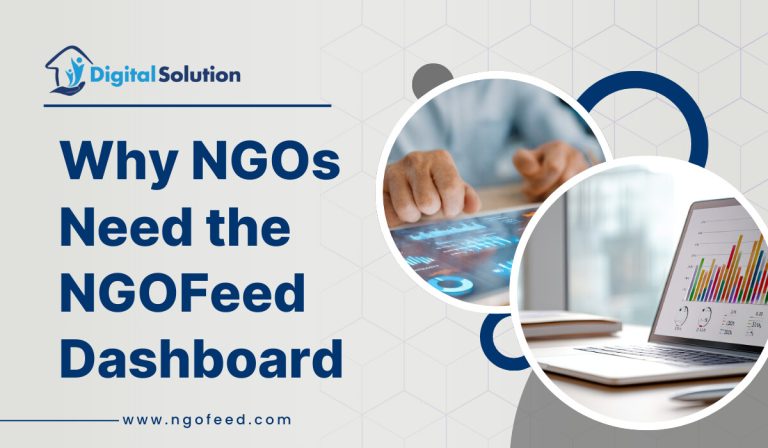Best Practices for NGO Financial Reporting and Audits: Financial openness and strong auditing procedures are absolutely vital for NGOs’ credibility and viability in the current funding climate. Your company must show strong financial integrity whether interacting with public audiences, regulatory agencies, or overseas funders.
The following is an exhaustive guide to best financial reporting and audit practices designed for NGOs of all sorts.
Table of Contents
Best Practices for NGO Financial Reporting and Audits
Financial reporting builds on accurate record-keeping. NGOs should:
1. Keep thorough financial records in real time
- Use expert accounting software that supports donor-specific reporting and complies with local reporting requirements.
- Keep real-time income, expenditure, liability, and asset records.
Also Read: Cultural Appropriation Vs Cultural Respect in NGO Campaigns
Divide distinctly:
- limited money for particular projects
- Unrestricted funds for general operational expenses
- Keep payroll records, MoUs, bills, receipts, and vouchers.
2. Adhere to known accounting standards
Consistent professionalism results from adhering to accounting standards:
- Depending on local regulations, embrace GAAP (Generally Accepted Accounting Principles) or IFRS (International Financial Reporting Standards).
- Accurate financial planning requires accrual-based accounting, not just cash accounting.
- Track donor-wise expenditures and use by using fund-based accounting.
3. Establish and Uphold Financial Procedures and Policies
Internal consistency and compliance are guaranteed by a clear financial policy manual:
- Process of budget preparation and approval
- Procurement processes include competitive bidding.
- Protocols for cash handling and petty cash regulations
- Guidelines on travel and expense refund
- Administration of donations and procedures for acknowledgement
- Rules for document security and record retention
4. Prepare timely Donor-Specific and Regulatory Reports
Donor retention and legal compliance rely on promptness and accuracy. Make Certain That:
- Tailored reports based on donor formats (e. g. , USAID, UNDP, EU, DFID)
- Quarterly financial summaries for funders and boards
- Financial statements with complete disclosures yearly
- Link financial data for impact storytelling in narrative reports
- Keep a reporting schedule with internal checkpoints at all times to prevent delays.
Also Read: FCRA Rules 2025: What Every NGO in India Must Know
5. Perform yearly external independent audits
Regular audits increase openness and build stakeholder trust:
- Designate a CPA or registered Chartered Accountant (CA).
- Check that audits meet local and global audit criteria including those of ISA by IFAC.
- Create a management reaction strategy to handle audit results.
- Distribute the audit report to the board, donors, and, when appropriate, the public.
Kinds of Audit:
- Statutory Audit: Compliance is required here.
- Required by particular donors: Project Audit
- Internal Audit: Conducted quarterly or half-yearly to evaluate financial status,
6. Develop robust internal controls and division of duties
To avoid misapplication of funds, introduce internal controls including:
- One person prepares, another approves: maker-checker system.
- payments with multi-level approval hierarchy
- financial systems under user role limitations and password protection
- Periodic asset and inventory stock check
- Utilities, machinery, and vehicles should all have tracking logbooks.
Also Read: Values Driven Fundraising
7. Use the budget as a working tool
A budget should be periodically reviewed and revised as necessary rather than fixed:
- Slice the yearly budget into monthly or quarterly sections.
- Conduct variance analysis (budgeted versus actual spending).
- Rationalize significant differences and seek permission for budget readjustment as needed.
- Create cash flow forecasts for effective fund management.
- This not only improves planning but also helps prevent overspending and shortcomings.
8. Assure tax and statutory compliance
To work morally and prevent penalties, NGOs need to adhere to all pertinent legal systems:
- Income tax exemption applications (e. g., 12A/80G in India or 501(c)(3) in the U. S.)
- FCRA registration for accepting foreign contributions
- If relevant, GST/VAT returns.
- Receipts for donors with transaction numbers and distinct IDs
- Annual returns with charity authorities or governmental agencies
- Missing these deadlines might result in tax-exempt status loss or funding suspension.
9. Encourage openness by means of public exposure
Public financial openness establishes credibility with communities and funders:
- Publish annual reports and audited financial statements electronically.
- Give list of donor-wise contributions.
- Publish fund use summaries in brochures or newsletters.
- Emphasize how donor money helped to produce clear results.
- Also think about including your NGO on credible databases like Charity Navigator, Global Giving, or GuideStar.
10. Work with the Board and Finance Subcommittee
A board that is well-informed guarantees adequate financial control:
- Set up a finance committee with board and outside professionals.
- Include the board in risk assessments, audit inspections, and budget authorizations.
- Arrange board member financial briefings quarterly.
- Promote board-level funding and adherence monitoring
- This links governance with operational management.
Also Read: Top 10 Government Schemes For NGOs
11. Increase Financial Literacy Staff Capabilities
Financial processes must be known even by program personnel so that operations go without issues:
- Offer budgeting, cost monitoring, and compliance instruction.
- Provide donor reporting format workshops.
- Teach the fundamentals of cost efficiency, fraud prevention, and financial ethics.
- Cross-functional knowledge improves internal accountability and helps to lower operational errors.
12. Create a framework for risk management
NGOs have to spot financial hazards and develop mitigation plans:
- Conduct background checks and internal audits on corruption and fraud.
- Currency swings: Apply hedging techniques for international grants.
- Keep an operational reserve fund to help with cash flow gaps.
- Withdrawal of a donor—Multiple sources of finance
- Digital theft: employ two-factor authentication and encrypted systems.
- Yearly financial risk evaluations enable one to prepare proactively.
Also Read: Benefits of Fundraising for Nonprofit Organizations
To Summarize
NGOs have a moral and legal responsibility to manage money with strictest honesty. Effective financial reporting and auditing procedures are ethical imperatives for groups utilizing public resources and supporting vulnerable communities, not simply donor requirements. Institutionalizing these best policies will help NGOs increase operational effectiveness, draw more resources, and foster long-lasting stakeholder trust.








